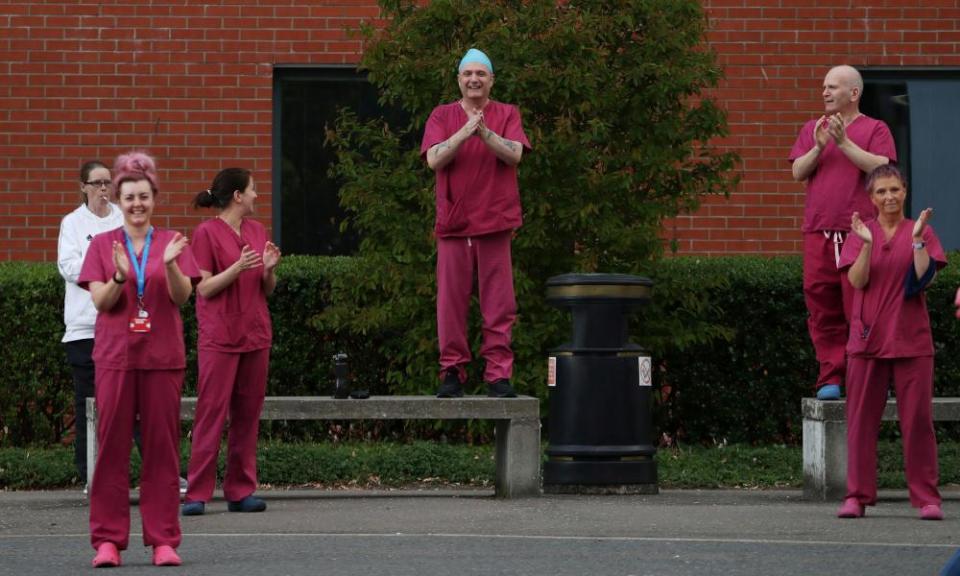Psychologist tells frontline NHS staff 'it's OK not to be OK'

“It’s OK not to be OK” is by far the most useful message to give frontline staff, according to the psychologist leading Scotland’s longest-running coronavirus support hub, as she warns that NHS workers and the public risk becoming overwhelmed by helplines, apps and other resources.
“The most helpful thing we can do right now is to normalise what staff are feeling,” says Dr Lynne Taylor, the director of psychology at NHS Grampian, who launched the virtual hub in the same week that lockdown was announced.
“The situation is so exceptional that it is normal to experience abnormal feelings. While there are lots of offers of debriefing and more conventional responses, this can end up increasing the risk of PTSD. At this stage, it’s about getting the message across that it’s OK not to be OK and to think of practical things people can do related to psychological first aid.”
Based on the resilience hub set up following the Manchester Arena bombing, and informed by early research from China and Italy, the self-referral system is open to members of the public as well as staff, and offers up to three telephone sessions with clinical professionals. It also provides a drop-in centre for staff working on acute Covid wards, staffed by psychologists who are specifically rotaed around shift changeover times, seven days a week.
Related: People in deprived areas of Scotland more likely to die from Covid-19
Taylor has also worked with the Scottish government’s PRoMIS national wellbeing hub to provide a guide to evidence-based resources, to steer people through the vast range of offers of psychological assistance that have sprung up in recent weeks. There’s lots of compassion in the community and from organisations all trying to provide support,” says Taylor, “but the myriad of helplines and resources is becoming really confusing for the public.
“Lots of people are conflicted because they feel they are not achieving what they might normally be right now. But they just need to be thinking about their safety, basic needs and contact with other people. Right now it’s not the time to live your best life – but to live your life as best you can in simple ways.”
Psychologists working at the hub have described to the Guardian the range of difficulties that callers are experiencing. Those with pre-existing mental health conditions that have been exacerbated by lockdown may dip in for a refresher session; others, especially staff members, have never sought psychological support in the past but find that present extremes are testing their resilience.
Some staff members are experiencing moral injury, a term that originated in the military and describes the distress, guilt and shame of violating one’s own ethical code. This might happen because physical isolation has disrupted the support professionals can usually offer to patients and relatives, or because the demands of treating the virus mean that staff cannot focus on other healthcare responsibilities.
There are those, particularly older people, who are terribly lonely, like the widower who finds his regular outings cancelled. Children are missing routines and friends, while those with key worker parents are struggling because they are seeing so much less of them.
Early data has found that around one-third of self-referrals received were from staff, rather than the public, and yet two-thirds of those staff needed higher levels of support for their symptoms.
One in 10 self-referrals were from individuals under the age of 18, but Taylor notes that the children and young people coming to the hub so far have presented lower levels of distress than adults, and were looking for tips and techniques to cope.
With referrals increasing by the week, Taylor believes services like hers will have to remain in place for the next year to 18 months to respond to the developing psychological impact of the virus.
“The numbers seeking psychological support now are not that huge. The psychological consequences and mental distress that come from a situation like this are often the last wave of symptoms – you get your critical first wave of high Covid infection rates, then people waiting for other treatment, then the psychological impact is last.”

